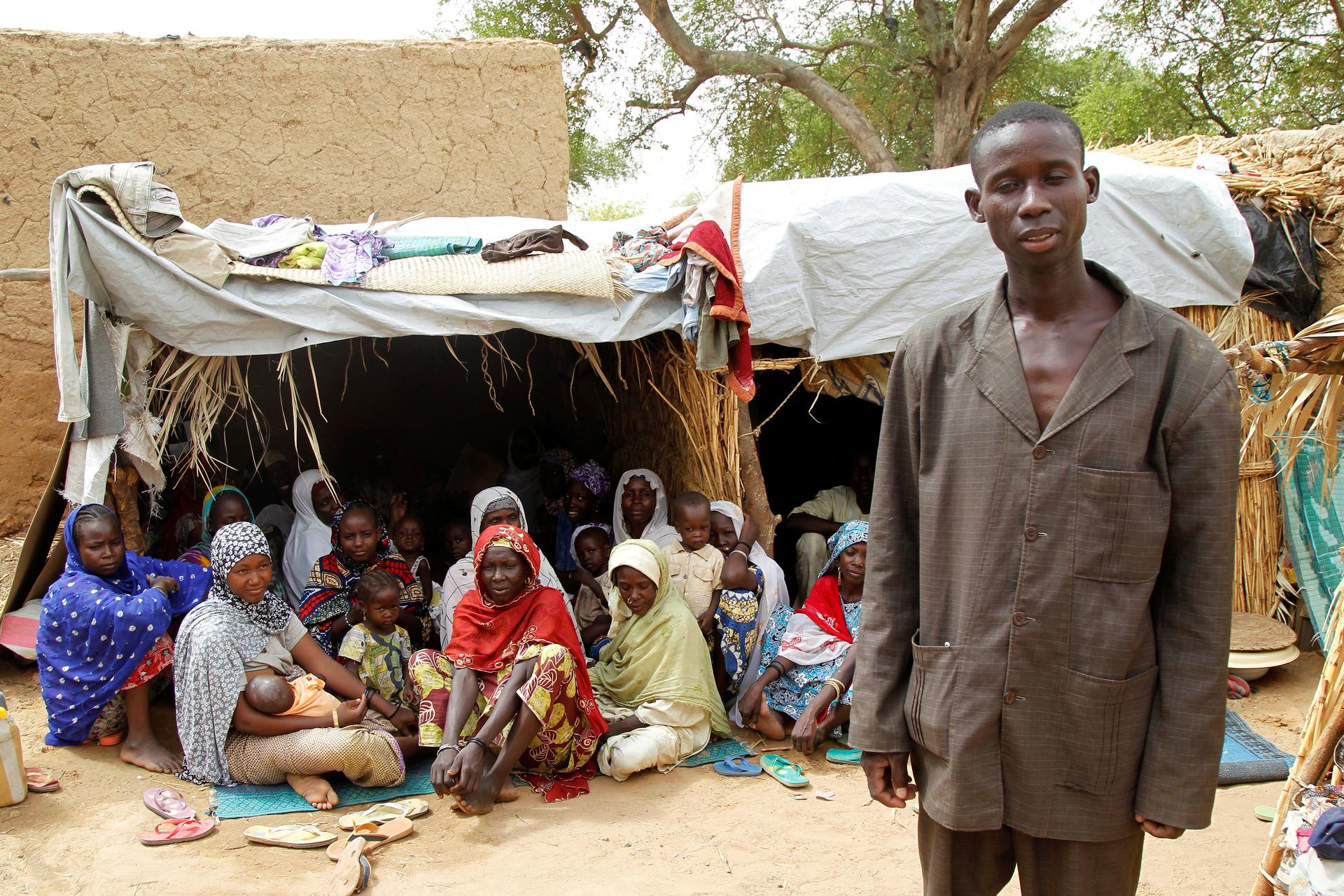50,000 children may die if Nigeria’s food shortage isn’t dealt with — and fast
Aba Ali, a Nigerian refugee who fled from his village in northeastern Nigeria into Niger following Boko Haram attacks, stands next to his relatives at the home of Adamu Moumouni, his Nigerien host who took them in June 21, 2016.
With 4.4 million food insecure individuals in northeastern Nigeria, the region is on the brink of famine. Boko Haram, the militant group who has overrun the area, is clearly a major cause of this crisis, which has taken international aid agencies by surprise.
Doctors Without Borders says that at least six people are dying from malnutrition each day in just one displaced persons camp. The UN’s children’s agency, UNICEF, says up to 50,000 children could die unless they receive treatment soon.
Chris Stein, the Nigeria correspondent for Voice of America, says while Nigeria has a system for dealing with food insecurity, which has deep roots in the region, it's not enough. “The issue is that malnutrition is not a lack of food, but a lack of clean water and issues of disease as well. Clearly, that system has broken down.”
Stein continues, “It’s difficult for me to say who’s at fault. These aid agencies are only just finding out there’s this deep of malnutrition, and they have to scale up their response and get the money they need.”
The UN has stated that, to combat Nigeria’s food insecurity, it needs $174.4 million in aid as soon as possible.
But even if the funding comes in, an enormous obstacle stands in the way of international aid organizations: access. Stein explains, “Huge swaths of Northeastern Nigeria were just too dangerous for anybody to enter, except for perhaps with the Nigerian military.”
But military escorts are only sporadically available. Stein uses the city of Bama as an example, the second largest city in the Borno state. Even though Bama is only 70 kilometers from the safe state capital, Maiduguri, it’s often impossible to find soldiers willing to make the journey.
The last health crisis Nigeria had to face was Ebola, and the government was effective at eradicating the illness. Could that be an indication of success against the northeast’s impending famine?
Stein says no. “Ebola happened in the country’s southern cities, which are comparatively easier to access. In the northeast, Boko Haram has done a very thorough job of trying to erase the government institutions, government employees.”
Also, it’s a question of scale. “Ebola was a few hundred cases, people that needed to be watched. This is 4.4 million people in hard-to-reach areas with major funding challenges hitting Nigeria at a time when it’s going into a recession.”
The compounding geopolitical, economic and health concerns do not bode well for the northeastern Nigerians. The crisis is likely to worsen, spreading to Cameroon, Niger and Chad.
This story first aired as an interview on PRI's The Takeaway, a public radio program that invites you to be part of the American conversation.
Our coverage reaches millions each week, but only a small fraction of listeners contribute to sustain our program. We still need 224 more people to donate $100 or $10/monthly to unlock our $67,000 match. Will you help us get there today?
